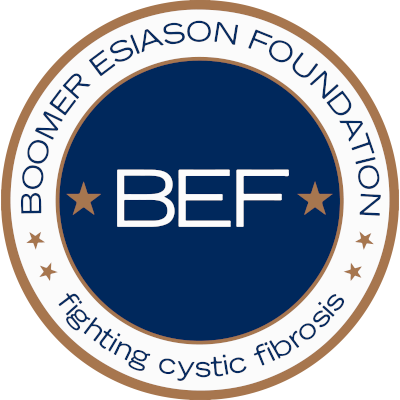PTC Therapeutics, Inc. today announced the publication of data from a Phase 2a clinical trial of ataluren in children with nonsense mutation cystic fibrosis (nmCF) in the American Journal of Respiratory and Critical Care Medicine. The published data show that treatment with ataluren, an investigational new drug, resulted in statistically significant improvements in the production and function of cystic fibrosis transmembrane conductance regulator (CFTR), a critical protein lacking in CF patients.
“We are encouraged by the results of this study, which show that ataluren is pharmacologically active and generally well tolerated in children with nonsense mutation cystic fibrosis,” said Isabelle Sermet-Gaudelus, M.D., Ph.D., principal investigator at l’Hopital Necker-Enfants Malade. “There is a great need for new cystic fibrosis treatments to help prevent disease manifestations, particularly in younger patients. These safety and activity data in pediatric patients support the inclusion of children in long-term studies of ataluren.”
Patients with CF lack adequate levels of the CFTR protein, a chloride channel necessary for normal function of the lung, pancreas, liver and other organs. In nmCF, an interruption in the genetic code-known as a nonsense mutation-prematurely halts the synthesis of CFTR, causing the protein to be short and non-functioning. Nonsense mutations are categorized as Class I mutations that result in little or no production of the CFTR protein. CF patients with Class I mutations typically experience more severe disease symptoms than those with lower-risk genotypes, including a greater than twofold increased risk of death, a higher probability of end-stage lung disease, and a higher prevalence of pancreatic insufficiency. Ataluren, a protein restoration therapy, is designed to overcome the nonsense mutation and enable the production of a full-length, functional CFTR protein. A simple genetic test can determine if a patient’s disease is caused by a nonsense mutation.
“Results from this clinical study in children provide additional strong evidence of ataluren activity in nonsense mutation cystic fibrosis,” said Stuart W. Peltz, Ph.D., President and Chief Executive Officer of PTC Therapeutics. “This data adds to the growing body of published preclinical and clinical data showing ataluren’s activity in cystic fibrosis and other nonsense mutation genetic disorders. The results are important because they also document the potential for ataluren as a disease-modifying therapy in nonsense mutation cystic fibrosis.”
About the Phase 2a Trial
The randomized Phase 2a dose-ranging study was designed to evaluate the safety and activity of two ataluren doses in children with nmCF. The study enrolled 30 participants with nmCF aged 6 to 18 years at three trial sites in Belgium and France. Patients were assessed in two 28-day cycles, comprising 14 days on and 14 days off ataluren. Patients received a dose of 4-, 4-, 8- mg/kg in one cycle and a dose of 10-, 10-, 20- mg/kg in another cycle, in a randomized order.
The primary endpoint of the Phase 2a trial was CFTR chloride transport as assessed by nasal transepithelial potential difference (TEPD), a surrogate for the presence and activity of the CFTR protein. Results showed that ataluren induced statistically significant improvements in chloride channel activity, with some patients achieving chloride transport values in the range of healthy children. Overall, 50% of patients (significantly greater than the null hypothesis of 10%, p<0.0001) had a total chloride transport response (at least a -5 mV improvement) and the mean change for all evaluable patients was -4.2 mV (p=0.002) after two 28-day treatment cycles at two dose levels. Importantly, TEPD compliance was excellent with only 1 of 150 tests not completed suggesting repeated TEPD evaluations are feasible in children of this age group. Secondary outcome measures included the proportion of epithelial cells from the nostril showing CFTR protein expression as assessed by immunohistochemistry. Across all patients, there was a 17% (p<0.01) improvement in CFTR protein expression. In addition, efficacy results showed that multiple nonsense mutation genotypes responded to ataluren therapy. Safety results showed that ataluren was generally well tolerated and compliance was >93%. Adverse events were mild or moderate, and no patients discontinued treatment due to an ataluren-related adverse event.
The abstract entitled “Ataluren (PTC124) Induces CFTR Protein Expression and Activity in Children with Nonsense Mutation Cystic Fibrosis” is available online at: http://ajrccm.atsjournals.org/cgi/content/abstract/201001-0137OCv1
.
More information on the Phase 2a clinical trial is available online at http://www.clinicaltrials.gov/NCT00458341
.
